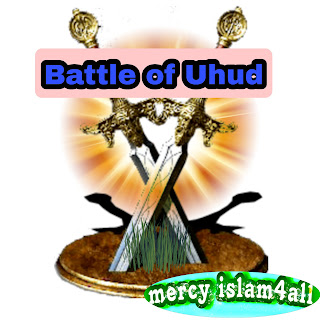Battles of Prophet Muhammad: Lessons in Courage and Leadership
The battles fought by Prophet Muhammad (peace be upon him) hold significant historical and spiritual importance in the Islamic tradition. They provide valuable lessons in courage, strategy, and leadership. This article explores some of the notable battles fought by the Prophet Muhammad, highlighting their historical context, key events, and the lessons they offer.
Battle of Badr: Triumph Against All Odds
Historical Context and Significance
The Battle of Badr took place in the year 624 CE and marked a turning point in the early history of Islam. It was a clash between the small Muslim community and the powerful Quraysh tribe of Mecca. Despite being heavily outnumbered, the Muslims achieved a decisive victory, solidifying their position and establishing the strength of their faith.
Lessons in Trusting Divine Assistance
The Battle of Badr teaches the importance of placing trust in Allah's assistance. Prophet Muhammad and his companions, despite their limited resources, relied on their faith and sought Allah's help. This battle demonstrates that true strength lies not in numbers or material possessions, but in unwavering faith and reliance on the Divine.
Read also The Power of Patience in Islam
Battle of Uhud: A Lesson in Unity and Perseverance
Historical Context and Challenges Faced
The Battle of Uhud, fought in 625 CE, was a significant test for the Muslim community. The Quraysh sought revenge for their defeat at Badr and launched an attack on the Muslims in the mountainous region of Uhud. The battle presented numerous challenges, including a momentary lapse in discipline that led to setbacks for the Muslims.
Read also The Hijrah of the Prophet
Lessons in Unity and Perseverance
The Battle of Uhud highlights the importance of unity and perseverance in the face of adversity. Despite initial setbacks, the Muslims rallied together under the leadership of Prophet Muhammad, demonstrating resilience and determination. This battle serves as a reminder that maintaining unity and perseverance are crucial for overcoming challenges and achieving success.
Read also The Virtue of Dawn Prayer in Islam
Battle of the Trench: Strategic Defense and Solidarity
Historical Context and the Siege of Medina
The Battle of the Trench, also known as the Battle of Ahzab, took place in 627 CE. It involved a coalition of tribes led by the Quraysh, who laid siege to the city of Medina. The Muslims, under the leadership of Prophet Muhammad, employed a defensive strategy by digging a trench around the city to repel the enemy forces.
Read also Avoiding Sorcery in Islam
Lessons in Strategic Defense and Solidarity
The Battle of the Trench teaches important lessons in strategic defense and solidarity. Prophet Muhammad's decision to dig a trench as a defensive measure showcased his tactical acumen. The unity and cooperation among the Muslims during this difficult time demonstrated the strength of their bond and their commitment to protecting their community. This battle emphasizes the significance of strategic thinking, preparedness, and collective action in the face of external threats.
Treaty of Hudaybiyyah: Diplomacy and Strategic Wisdom
Historical Context and the Importance of the Treaty
The Treaty o
f Hudaybiyyah, signed in 628 CE, was a significant diplomatic achievement for the Muslim community. Despite initial difficulties and apparent concessions, the treaty allowed for a period of peace and opened the door for the spread of Islam. It demonstrated the Prophet Muhammad's strategic wisdom and his commitment to resolving conflicts through peaceful means.Lessons in Diplomacy and Strategic Thinking
The Treaty of Hudaybiyyah teaches valuable lessons in diplomacy and strategic thinking. Prophet Muhammad's willingness to negotiate and make temporary concessions for the greater benefit of the Muslim community showcases the importance of pursuing peaceful resolutions whenever possible. This treaty emphasizes the significance of long-term goals and the wisdom of adopting a strategic approach to achieve them.
Conquest of Mecca: Forgiveness and Mercy
Historical Context and the Liberation of Mecca
The Conquest of Mecca occurred in 630 CE when Prophet Muhammad and his followers returned to Mecca, their birthplace, after years of exile. Rather than seeking revenge against their oppressors, the Muslims entered Mecca peacefully, demonstrating forgiveness and mercy towards their former adversaries.
Read also Benefits of Fasting in Islam
Lessons in Forgiveness and Mercy
The Conquest of Mecca exemplifies the importance of forgiveness and mercy in Islam. Prophet Muhammad's decision to show clemency towards the people of Mecca, despite their previous hostility, highlights the transformative power of forgiveness and the ability to foster reconciliation. This event serves as a profound lesson in compassion, benevolence, and the potential for positive change through forgiveness.
Read also The Best 10 Habits of Prophet Muhammad (PBUH)
The battles fought by Prophet Muhammad offer profound lessons in courage, leadership, unity, perseverance, forgiveness, and strategic thinking. They provide historical and spiritual insights into the challenges faced by the early Muslim community and the strategies employed by the Prophet Muhammad to overcome them. By studying these battles, we can gain valuable guidance applicable to various aspects of life, inspiring us to exhibit bravery, fortitude, and wisdom in navigating our own challenges.






Comments
Post a Comment